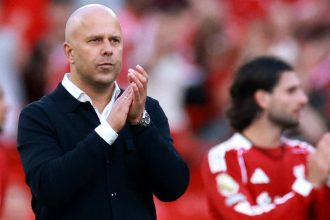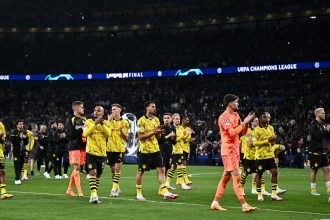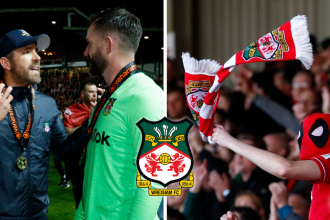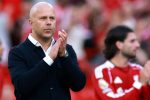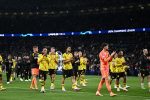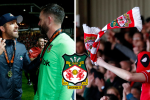The Glaswegian's genius made United a global phenomenon, but he also had a role in the Glazer takeover which put the club on the path towards disaster
Manchester United fans are experiencing a strange feeling right now. They are immensely looking forward to the Europa League final against Tottenham in Bilbao on May 21, but they know that their team is in a rotten state on the pitch as well as off it, as underlined by Ruben Amorim’s brutally honest remarks after Sunday’s defeat by West Ham.
There are clear parallels with 20 years ago, when United were preparing for the FA Cup final against Arsenal but were in disarray when it came to the controversial takeover by the Glazer family, which had just been completed. Two decades on, and the effects of the American family’s leveraged buyout are still being felt at Old Trafford.
United are in even greater financial dire straits than in 2005. The Glazer takeover sunk a club that had been balancing the books since 1931 into £580 million ($776m) of debt. That figure has since increased £731.5m ($965m), too. The club's debt is a huge factor in Sir Jim Ratcliffe’s swinging cuts, including his decision to make more than 400 employees redundant over the past year. And it is a big reason why United’s spending power has declined and why they are close to breaching the Premier League’s Profit and Sustainability limits.
United fans have been protesting about the Glazers ownership since before their bid was launched, and opposition to them has ramped up further since results have declined in the 12 years since Sir Alex Ferguson retired. While the team’s decline can be blamed on many bad recruitment decisions, the Glazers’ running of the club is undoubtedly the biggest underlining factor in their fall.
And the inconvenient truth is that Ferguson himself played a role in the takeover, from angering the club’s previous shareholders due to a dispute over a horse to not trying to stop the deal or even speak out against it. So, 20 years on from the deal which began the downfall of Manchester United, GOAL asks: How much blame should be portioned to Ferguson?
GettyIt all started with a horse…
Gary Lineker asked the very same question two months ago when United were dumped out of the FA Cup by Fulham, contrasting Liverpool’s incredible first season following Jurgen Klopp's departure with the Red Devils’ disastrous decade-plus since Ferguson's retirement. Lineker’s argument, which was ridiculed by the likes of Rio Ferdinand, focused on Ferguson's squad-building and the fact many of United's core players were already over the hill when he stepped down. Others have also pointed to Ferguson’s ill-advised decision to anoint David Moyes as his successor, but Ferguson's role in the Glazer takeover, even if unintentional at the time, casts a far bigger and darker shadow.
Although he had no idea at the time that his actions would lead to the Glazers' arrival, Ferguson ended up provoking the takeover due to the bitter row he sparked with the club’s then-majority shareholders, the Irish horseracing tycoons JP McManus and John Magnier. Horseracing was, and still is Ferguson’s greatest passion outside of football, and it led to him befriending the two billionaires, who own the Coolmore Stud. Ferguson persuaded the pair to buy shares in United in the good times, and the billionaires gifted the Scot one of their horses, Rock of Gibraltar.
The friendship soured, however, when Ferguson presumed that he had the stud rights to the horse, which were worth tens of millions of pounds, something McManus and Magnier vehemently disagreed with. Ferguson sued the pair and the dispute was settled out of court, with the manager receiving £2.5m ($3.3m) if he agreed to drop his claims over the horse. But McManus and Magnier got their revenge and cranked up the numbers of shares they had in the club, only to sell them to Malcolm Glazer soon after at a profit of £100m. ($132m)
AdvertisementGetty'Glazers are his legacy'
Ferguson had ignored warnings about taking on the powerful Irish duo, but it still might sound like a stretch to blame him for causing the takeover. However, many of the United fans who opposed the takeover most fiercely blame him for not halting it. United activist Andy Walsh urged Ferguson to resign as manager in a last-ditch effort to stop the takeover, an offer the Scot declined.
"The slightest indication from him that he’d quit if the takeover went through and the whole thing would have been dead in the water,” John Paul O’Neill, another takeover opponent who ended up founding rebel club FC United of Manchester alongside Walsh, told . "He knows it and we know it. The Glazers are his legacy."
Once the Glazers had ownership of the club, there was never a peep of opposition from Ferguson, largely because the Americans let him continue to run the team as he liked. He said in 2012: "I am comfortable with the Glazer situation. They have been great. They have always backed me whenever I have asked them. I have never faced any opposition. They have always been as sensible as they can be in terms of financing the club. They have to invest in the team to maintain the value of their asset."
AFPWinning with a reduced budget
Ferguson was not entiely telling the truth, though, as there was a marked reduction in United's transfer budget after the takeover. The manager spent little in the first two years, his only major signings being Edwin van der Sar, Park Ji-sung and Michael Carrick. He was admittedly given a bigger war-chest in the summer of 2007, adding Nani, Owen Hargreaves, Anderson and Carlos Tevez (on loan), which helped the team win the Premier League and Champions League a year later. But overall, the purse strings were tight.
Just take the fact that the club received £80m ($106m) from the sale of Cristiano Ronaldo in 2009 but only spent £22m ($29m), with Antonio Valencia and Michael Owen – on a free transfer – their biggest signings. It is to Ferguson’s credit that he still managed to have sustained success amid the austerity.
United surrendered the title in 2010 to Chelsea by a single point, but won it back a year later despite their biggest signings the previous summer being Javier Hernandez and Bebe. In 2013, meanwhile, Ferguson got one massive, star signing in Robin van Persie in what some interpreted as a parting gift to ensure he left having wrestled the title back from Manchester City, which his side duly did.
The irony is that a year after Ferguson left, the Glazers began to loosen the purse strings. Louis van Gaal was allowed to spend £165m ($219m) in his first summer and £135m ($179m) in his second on the likes of Champions League winners Angel di Maria and Bastian Schweinsteiger. Jose Mourinho was then able to spend £320m ($424m) in his first two summers, including making Paul Pogba the most expensive player in the world. Erik ten Hag most recently splashed out £600m ($796m) in three years.
AFPVarious roles needed replacing
But without Ferguson's knowledge and expertise and without a proper sporting director, United made countless blunders in the transfer market, often prioritising star names on big wages who were coming towards the end of their careers. The club also had a scattergun approach to hiring coaches, veering from one style to another with each appointment. Ferguson probably cannot be held responsible for the way the club has been mis-managed since his departure.
Or can he? Ferguson was such a powerful figure, in charge of every aspect of the club from transfers, youth development and even communications (United only launched a Twitter account after he had left) that the club failed to modernise during his long era. And because Ferguson had done things that way, the club’s hierarchy expected that all the managers that followed him would be able to do the same. Ferguson left, however, just as the other clubs that had trailed United were modernising, hiring sporting directors and data analysts.
The neglect continued long after Ferguson left. United only hired their first sporting director in 2021, the ill-equipped John Murtough. By contrast, City had had Txiki Begiristain, one of the key figureheads in Barcelona’s golden era, in the same post since 2012. Liverpool, meanwhile, have had a sporting director since 2010. United do not currently have one in place after the Dan Ashworth debacle, and Ratcliffe recently said data analysis “doesn’t really exist here. We’re still in the last century on data analysis here.”
